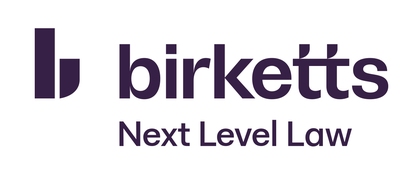The South East’s hospitality and leisure (HAL) sector is facing a growing number of employment tribunal claims, according to the Employment Law team at Birketts’ Sevenoaks office.
New research from Birketts has revealed that employers are anticipating increased claims due to the Employment Rights Bill, which introduces ‘day one’ rights to claim unfair dismissal. AI tools are also making it easier and faster for disgruntled employees to draft detailed complaints about workplace issues.
The situation is being exacerbated by the HAL sector’s high staff turnover, casual working arrangements, and challenges in managing grievances effectively.
The report, The Birketts View: Employment Tribunals in the Hospitality and Leisure Sector Impact Report 2025, surveyed HR professionals across England and Wales and found that HAL businesses had received an average of 44.53 tribunal claims over the past two years – 12% higher than the average across all sectors.
The most common claims brought against HAL businesses were harassment related to a protected characteristic (15%), with significantly fewer claims for ordinary and constructive unfair dismissal due to the prevalence of short-term contracts and seasonal work.
While recognising it’s important that employees have rights and that some grievances are completely valid, Birketts warns the Employment Rights Bill could lead to a surge in claims from employees who previously lacked the required length of service.

Charlotte Sloan, Legal Director, and head of Birketts’ Employment Law team in the South East, said: “The hospitality and leisure sector is particularly vulnerable to employment claims. The introduction of ‘day one’ rights under the Employment Rights Bill is likely to increase the volume of claims, especially in areas like harassment and discrimination.
“Employers must act now to strengthen their internal processes, provide robust training to line managers, and ensure grievances are handled effectively. Failure to do so could result in costly and time-consuming tribunal proceedings.”
She added: “AI tools make it easier and faster for employees to draft detailed complaints. As a result, employers appear to be increasingly faced with grievances that are longer, more complex, and sometimes contain significant inaccuracies, particularly in the interpretation of legal principles and even in the factual details. It is important to put an AI policy in place to proactively manage this.”
Birketts has made a number of recommendations and advised HAL businesses to:
Implement clear workplace policies and maintain open communication.
Provide training for managers on proactively managing grievances, discrimination, and harassment.
Consider early and robust tactics when claims are brought.
Prepare for the new legal duties under the Employment Rights Bill, including the requirement to prevent harassment by third parties.
HR professionals wanting to find out more about the Employment Rights Bill can attend ‘Navigating change – Birketts’ annual employment and immigration update’, which takes place on Tuesday, 14 October at Roffey Park Venue in Horsham. Tickets can be purchased via https://shorturl.at/dJ4kZ.

Before you go…
➡ Do you have exciting news to share about your business?
➡ Would you like to advertise to an audience of decision makers in Kent?
➡ Would you like to feature in the Entrepreneurs Deep Dive section?
➡ Do you have a job vacancy you’d like us to post?
Contact us today - [email protected]


